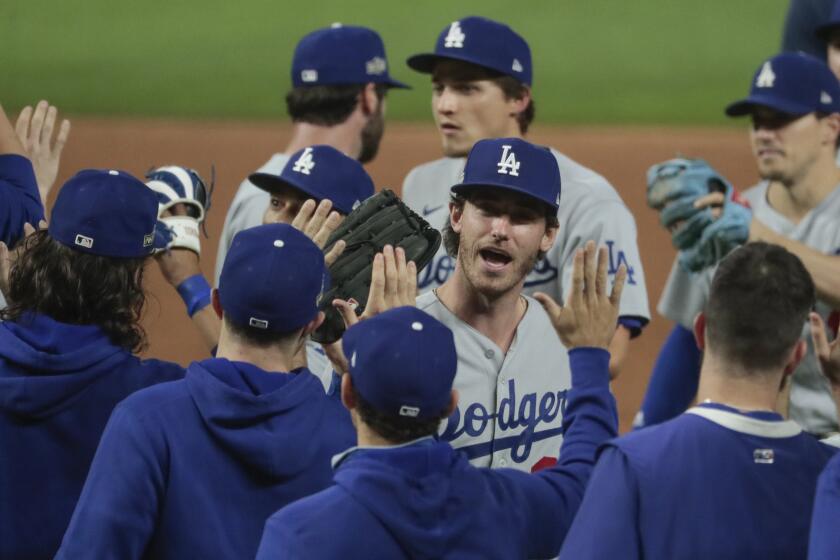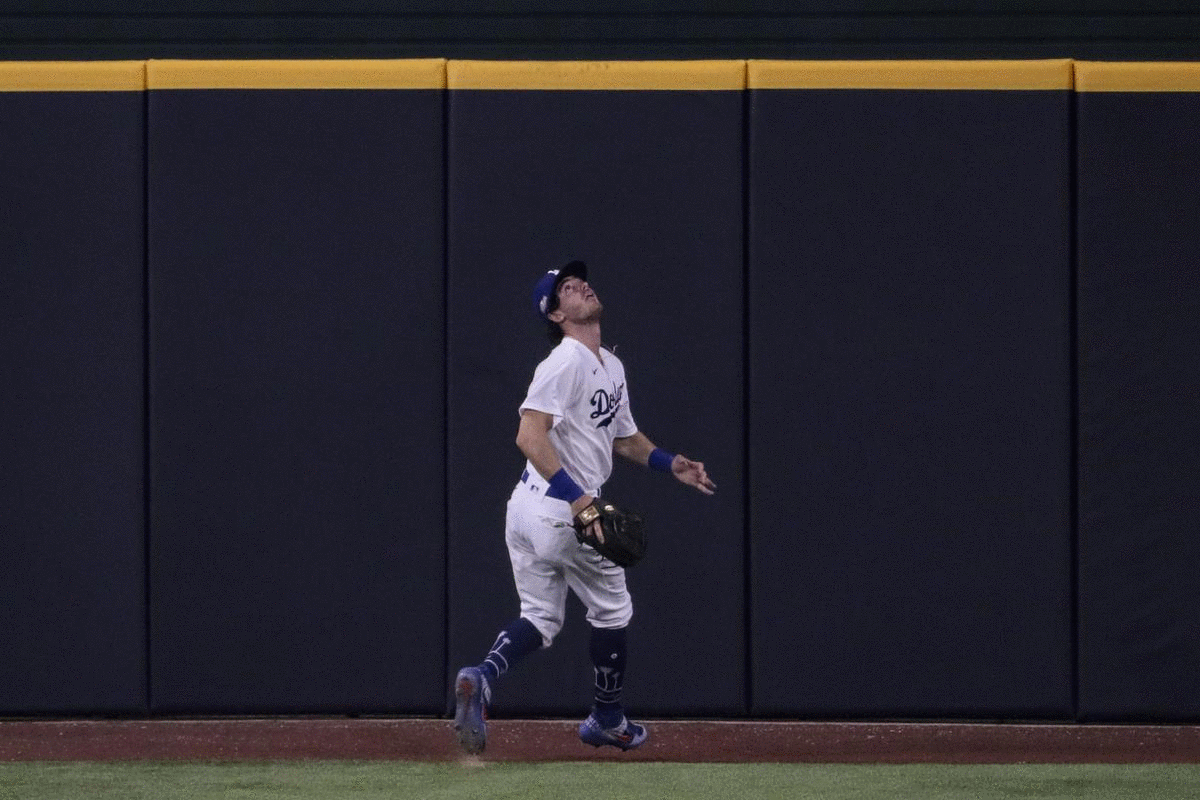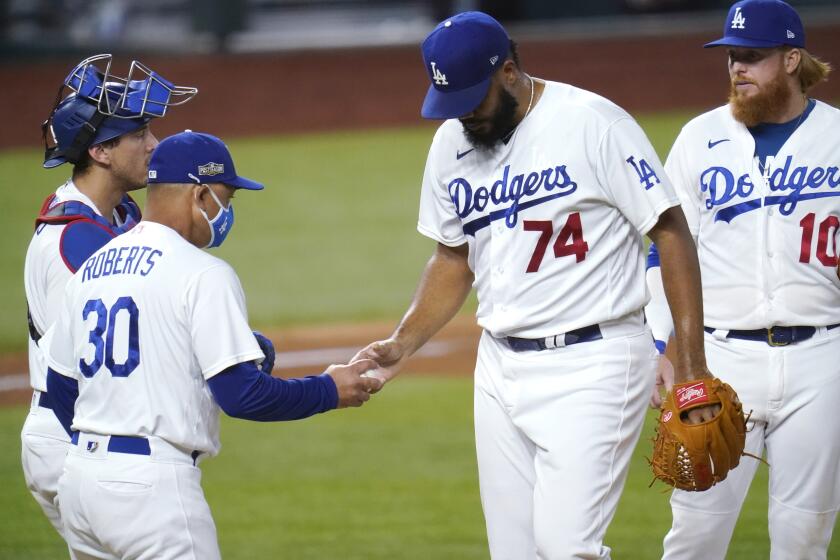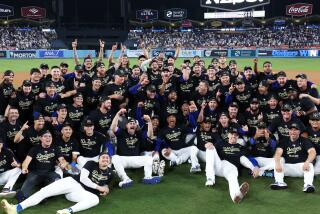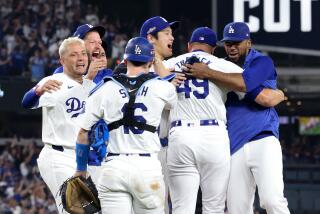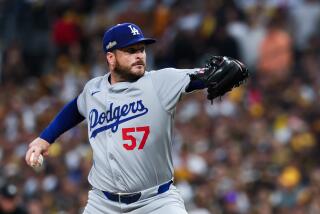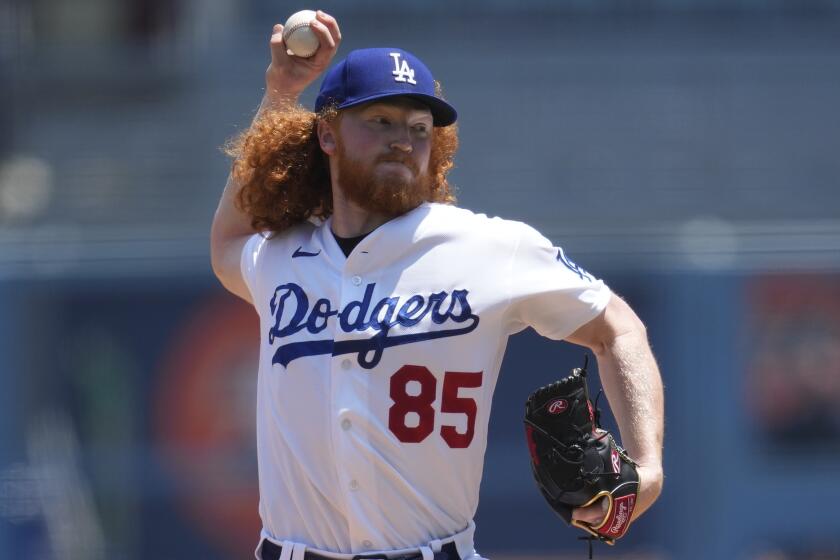Dodgers play the percentages with their pitching strategy vs. Padres
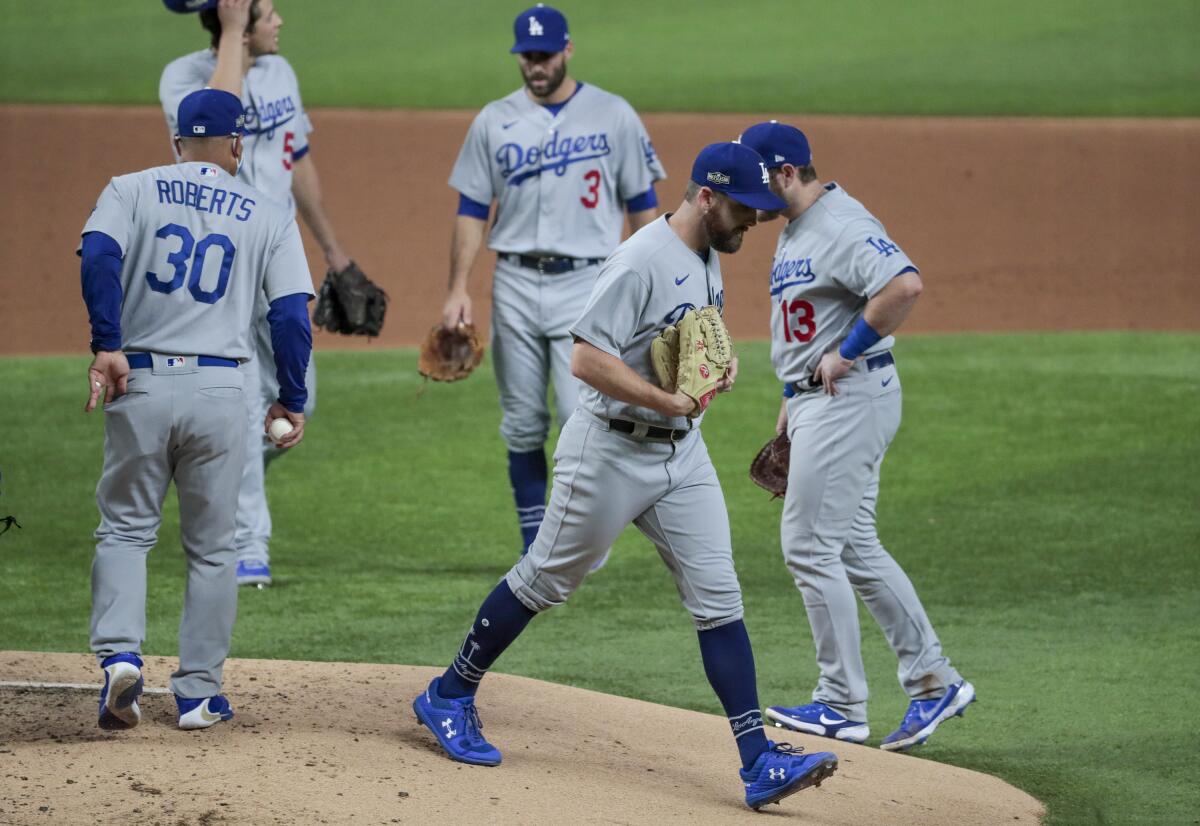
For the fifth game of the 2018 National League Championship Series, the Milwaukee Brewers announced left-hander Wade Miley as their starting pitcher. The Dodgers submitted their lineup accordingly. Miley faced one batter, and the Brewers promptly removed him in favor of right-hander Brandon Woodruff.
“I don’t know what ‘subterfuge’ means,” Brewers manager Craig Counsell protested after the game, but not convincingly.
The Brewers had to resort to a gimmick. The Dodgers should not have to do that.
The bottom line is the scoreboard, and the Dodgers advanced to the 2020 NLCS on Thursday, with a 12-3 victory that completed a sweep of the San Diego Padres. And, of course, the Dodgers are undefeated in the playoffs, and they have not lost in the past 15 days.
Yet, on the day after we wrote about how smart the braintrust is, the Dodgers might have outsmarted themselves.
The Dodgers sweep the San Diego Padres with a 12-3 win in Game 3 of the NLDS and advance to the NLCS where they will face the Atlanta Braves.
On Thursday morning, the Dodgers announced right-hander Dustin May as their starting pitcher. They lifted him after one inning, scrambled to use two left-handers to get out of the second inning, and had to come from behind for the victory.
In retrospect, the plan was not complicated to discern. The Padres’ best hitters — Fernando Tatis Jr. and Manny Machado — bat right-handed. So the Dodgers would announce May, and induce the Padres to load up their lineup with left-handed bats.
The Dodgers would give left-hander Julio Urías the bulk of the innings, but using May in the first inning would spare Urías from an early encounter with Tatis or Machado. In the second inning, left-hander Adam Kolarek would handle the left-handers crowded toward the bottom of the Padres’ lineup. Urías would take over in the third inning, and the Dodgers would roll from there.
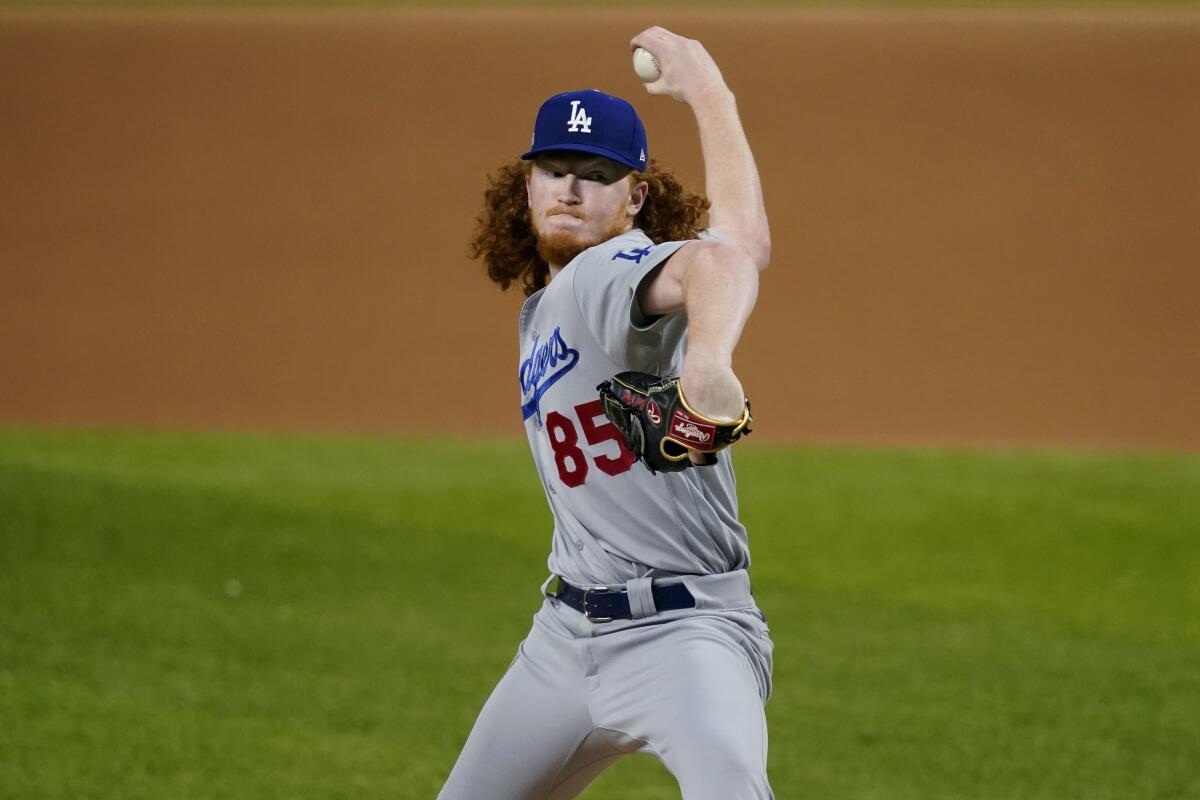
May did his part, working a scoreless first inning. But Kolarek gave up two runs, two walks and three hits in the second inning, forcing the Dodgers to rush in Urías to do the exact thing they were trying to protect him from doing: facing Tatis.
Urías struck out Tatis. He retired the first 10 batters he faced and carried the Dodgers into the seventh inning. In all, he worked five innings, giving up one hit and one run, which was unearned.
Dodgers manager Dave Roberts said the pitching alignment was “read and react,” with “nothing really scripted,” and he had the option to extend May for one more turn through the top of the lineup.
The Dodgers played their percentages. In fairness, other than the blip from Kolarek, the Dodgers hit on their percentages.
Andrew Friedman, the Dodgers’ president of baseball operations, made his name running the Tampa Bay Rays, where the results outpaced the payroll so dramatically that a book chronicled the Rays’ success. The name of the book: “The Extra 2%,” the pursuit of even the most incremental of edges, as a way to try to level the playing field.
Photographing Cody Bellinger’s leaping catch that robbed the Padres’ Fernando Tatis Jr. of a home run in Wednesday’s NLDS Dodgers’ win produced mixed emotions.
That is what the Brewers were trying to do, on the day they used their starting pitcher for one batter. The 2018 Brewers essentially trusted one starting pitcher that October: journeyman Jhoulys Chacin. Counsell all but stopped describing his pitchers as starters or relievers; he said they all were “out-getters.”
“Pick the five best starters in baseball — [Jacob] deGrom, [Justin] Verlander, [Max] Scherzer — if we had those three guys at the top of our rotation, I think Craig would be really comfortable,” Brewers general manager David Stearns said that day. “I don’t think he’d have a problem letting those guys run out there.”
The Dodgers start with Walker Buehler and Clayton Kershaw, and they are really comfortable with them.
Their other three starters — May, Urias and Tony Gonsolin — ranked within the top 18 in earned-run average in the NL, among pitchers with at least 40 innings. May and Gonsolin ranked within the top 10.
Dodgers manager Dave Roberts isn’t saying whether he’ll use Kenley Jansen as his closer moving forward after the pitcher’s disastrous Game 2 performance.
Gonsolin ranked seventh in ERA, just behind Max Fried, whom the Atlanta Braves almost certainly will start against the Dodgers in Game 1 of the NLCS. When the NLCS starts, Gonsolin will have not pitched in the previous 15 days.
May did not pitch in the first round, and he made one relief appearance in the NLDS. When the NLCS starts, he will have pitched three innings in the previous 14 days.
Urías has not started since Sept. 17. The Dodgers clearly like him as long man, effective behind Buehler in the NLDS and as the “bulk inning” pitcher on Thursday.
The NLCS is a seven-game series this year with no days off. In an era where pitching on short rest is frowned upon, the Dodgers would need someone not named Buehler or Kershaw to start Games 3, 4 and 5.
“When you’re talking about seven days in a row,” Roberts said, “you’re certainly going to need more length out of your starters.”
The Dodgers should be comfortable with May, Urías or Gonsolin starting, in the traditional manner. If they want to return the World Series, they’re going to have to trust the starters, not just the percentages.
More to Read
Are you a true-blue fan?
Get our Dodgers Dugout newsletter for insights, news and much more.
You may occasionally receive promotional content from the Los Angeles Times.

